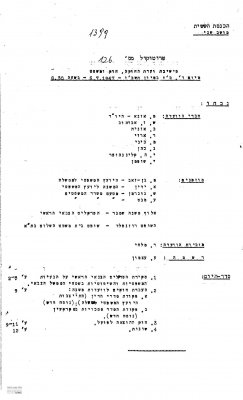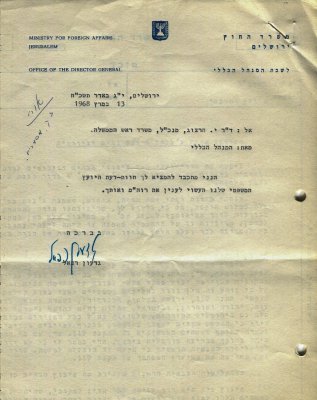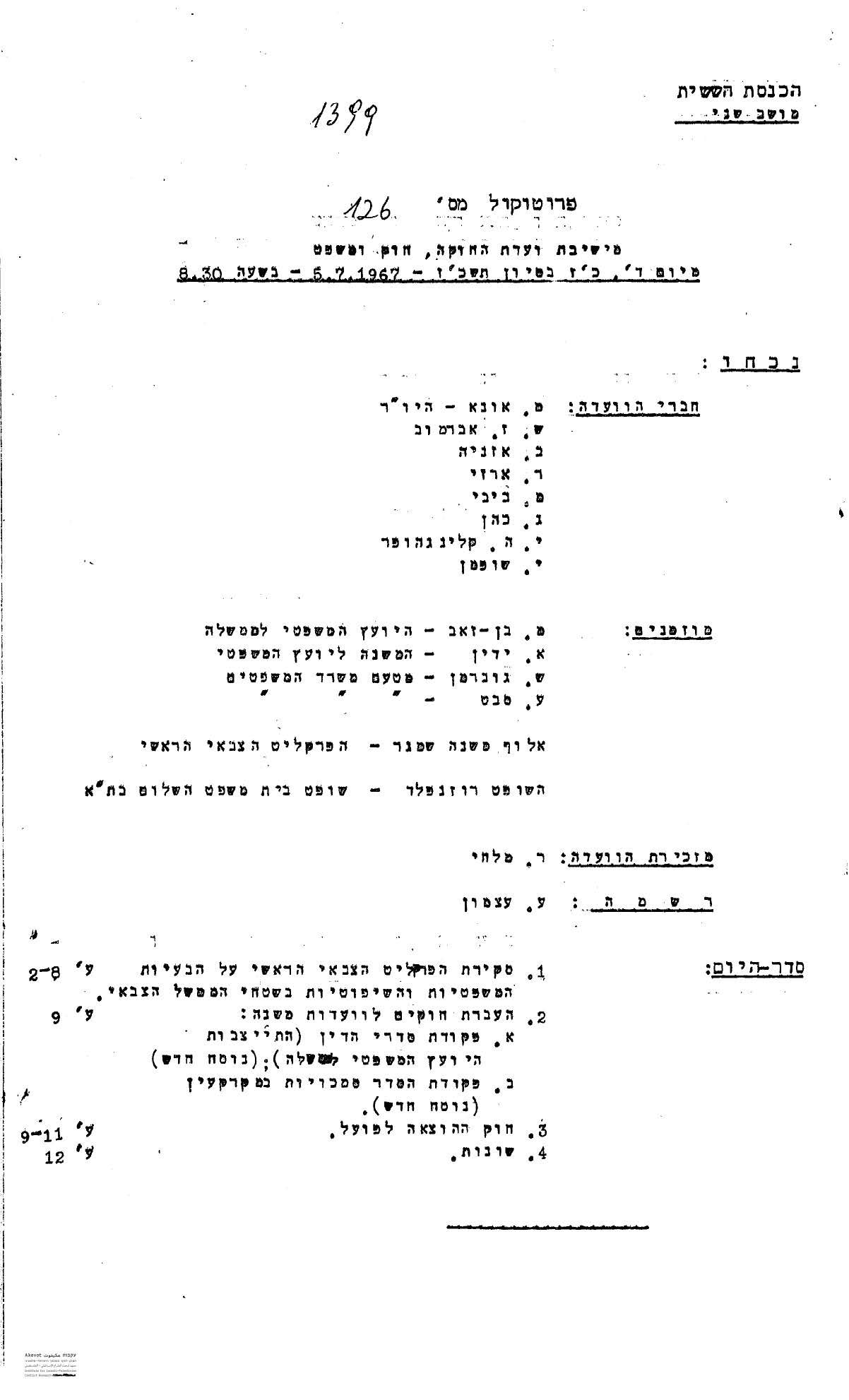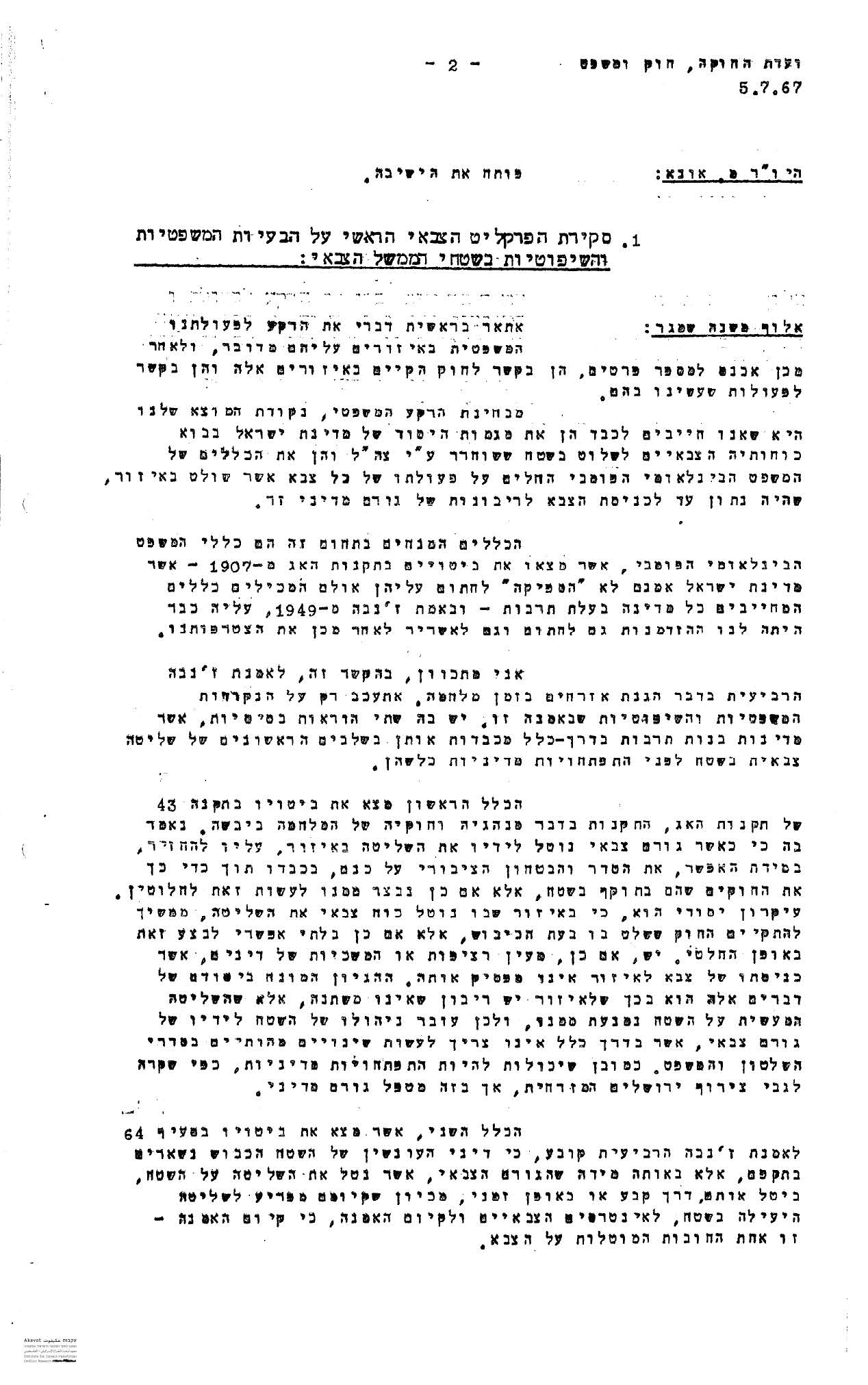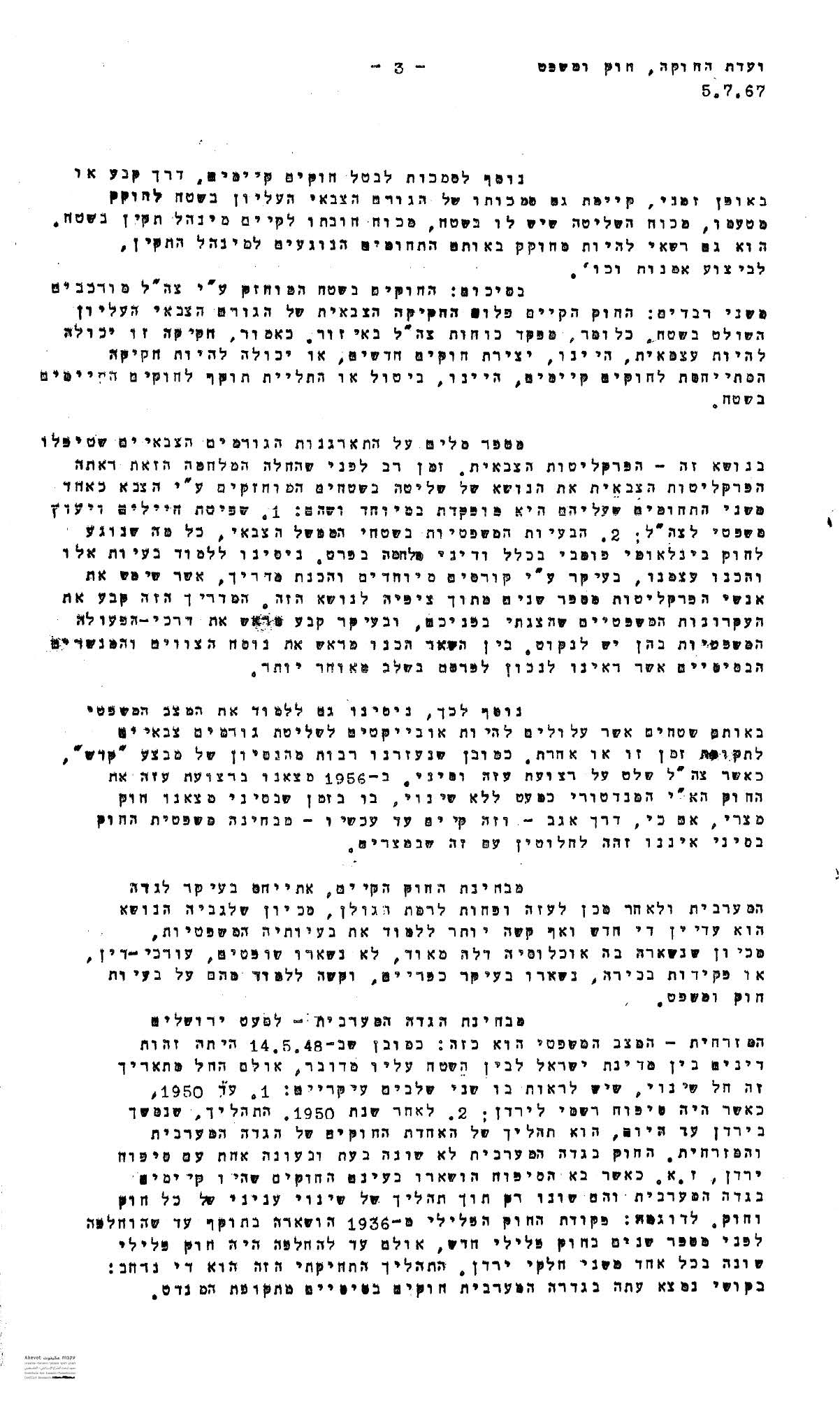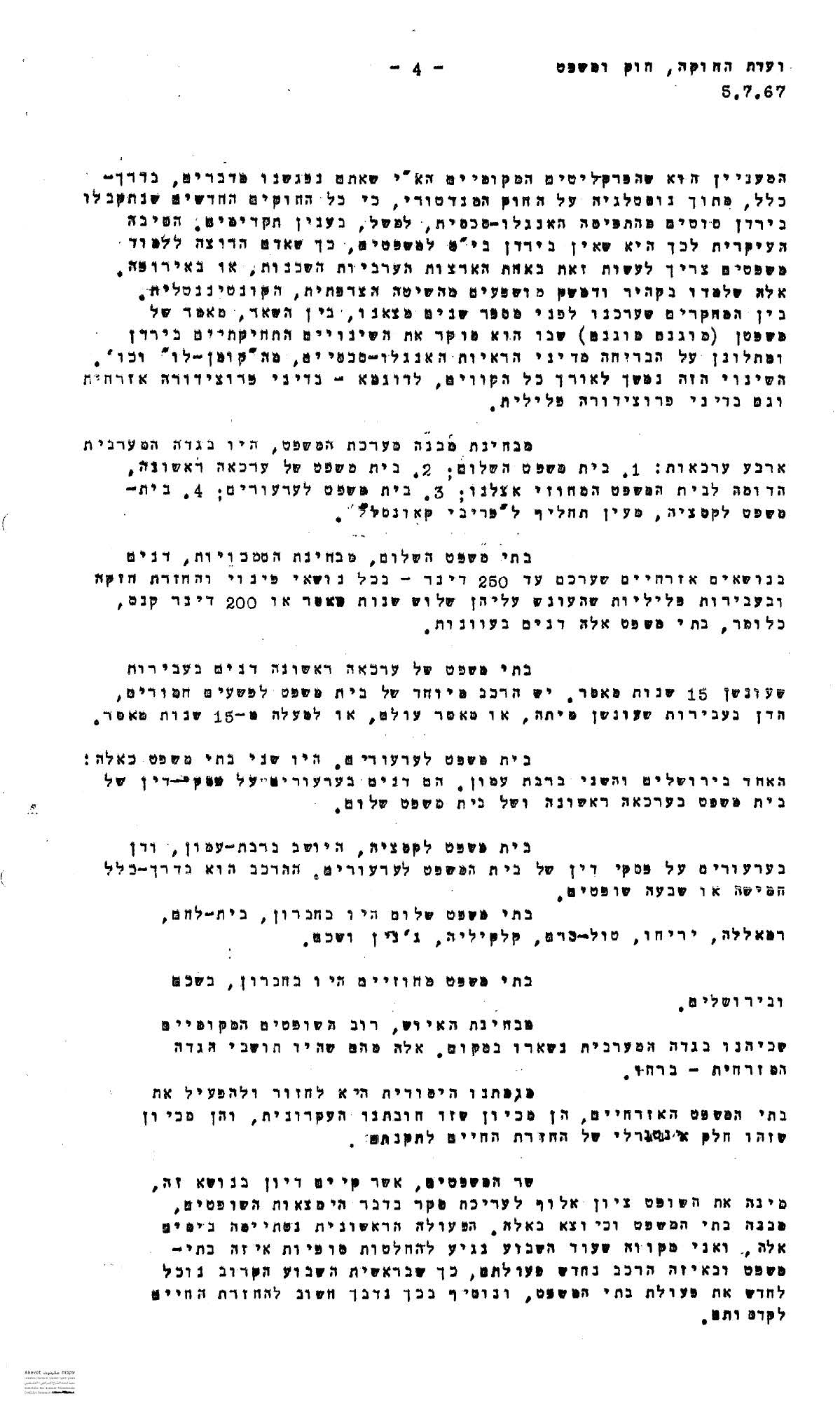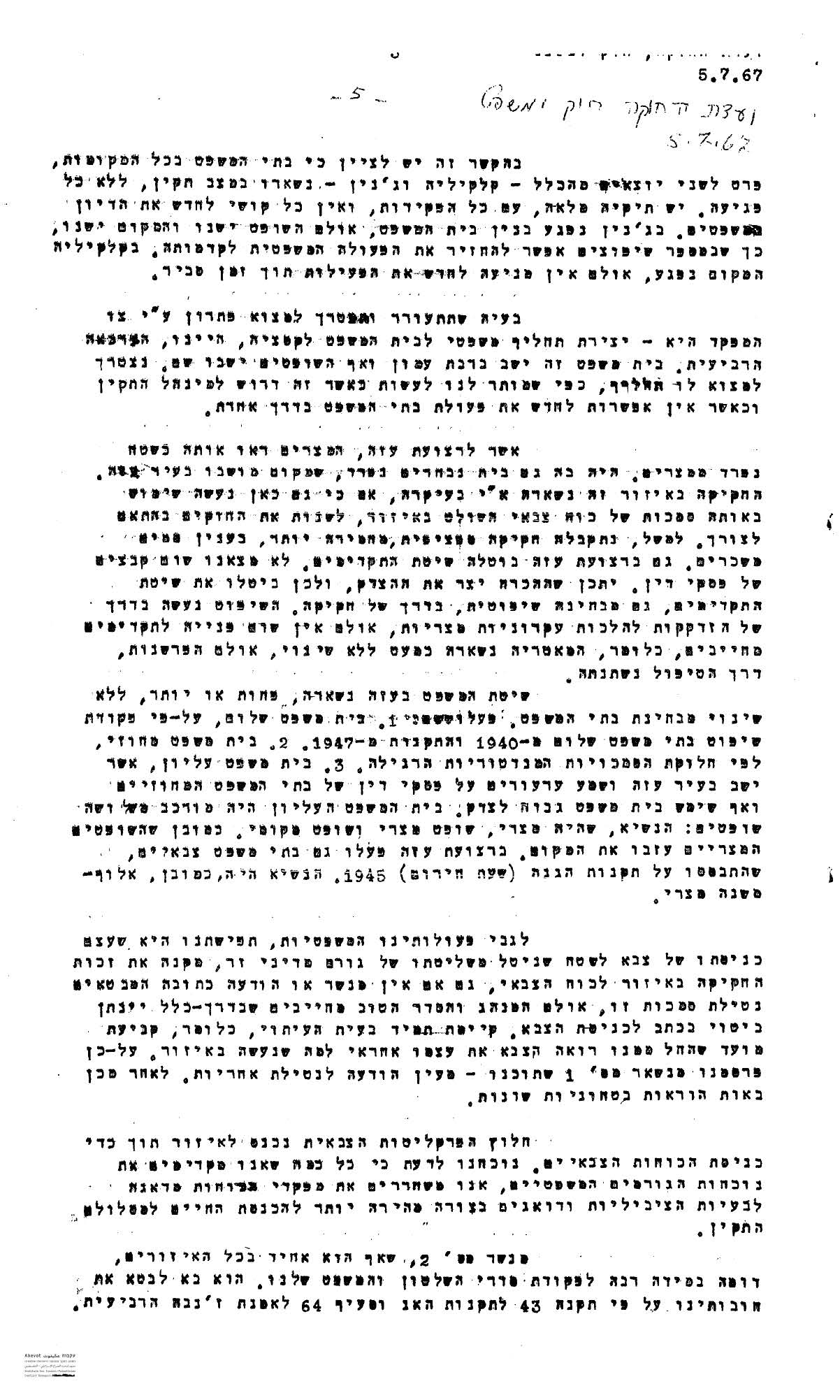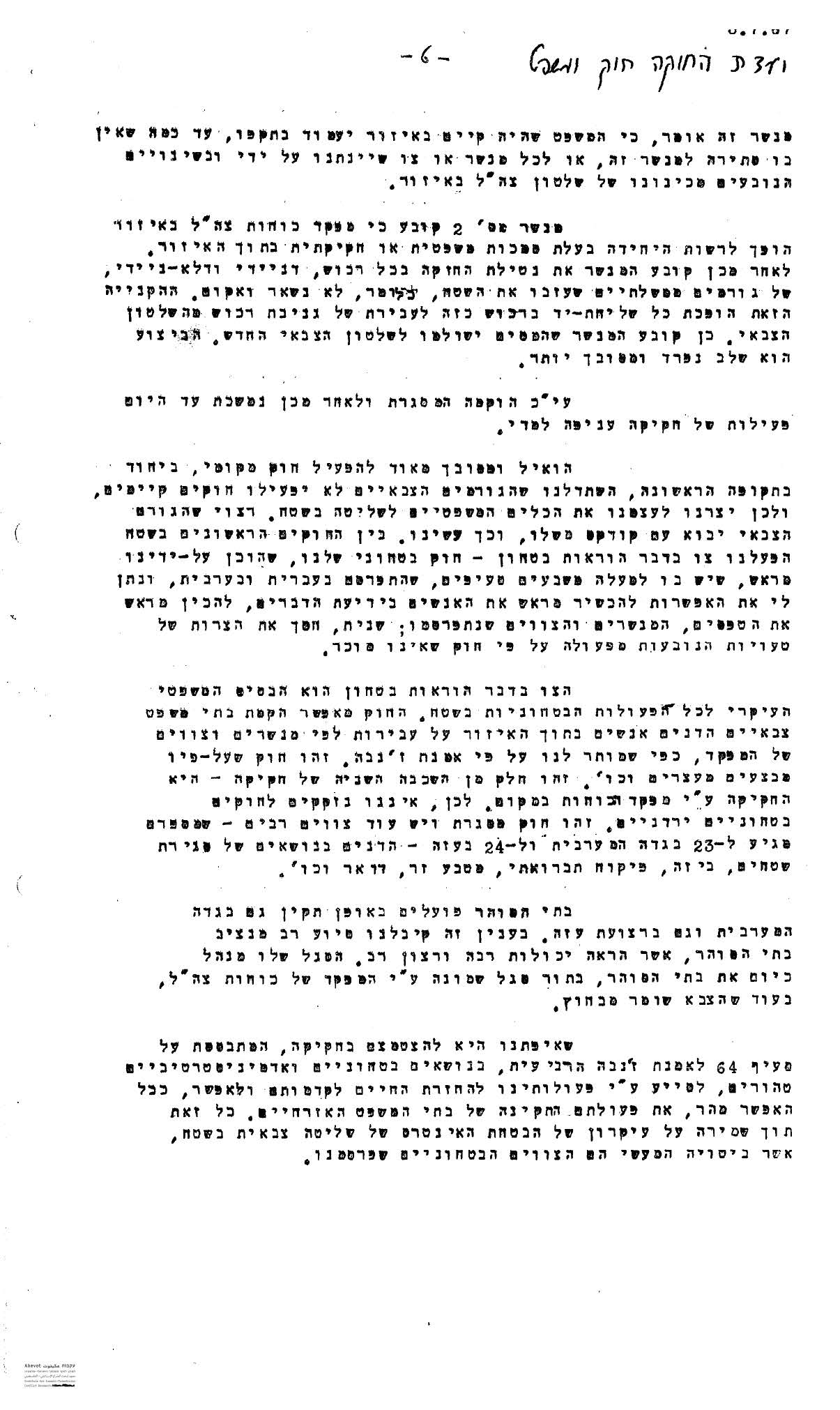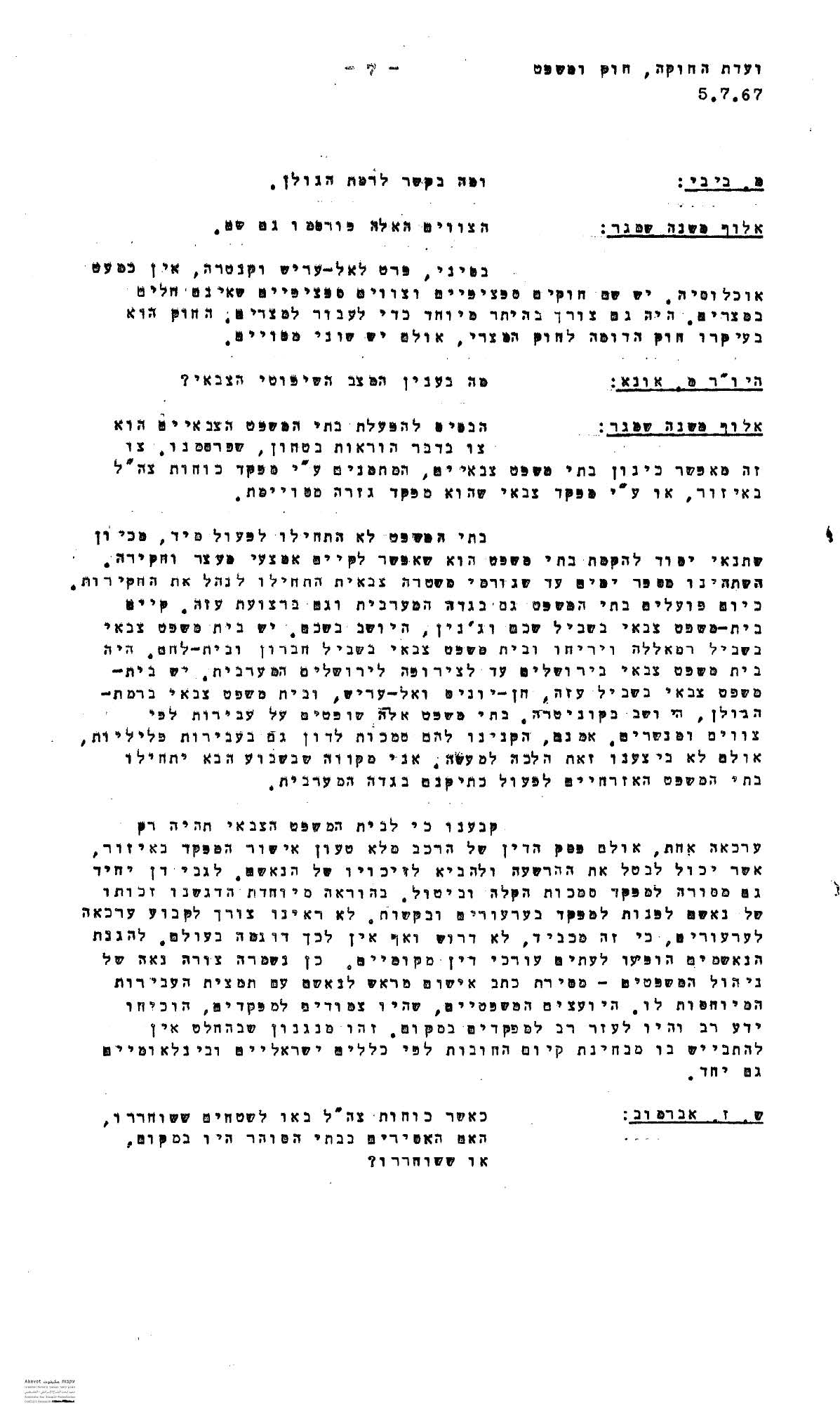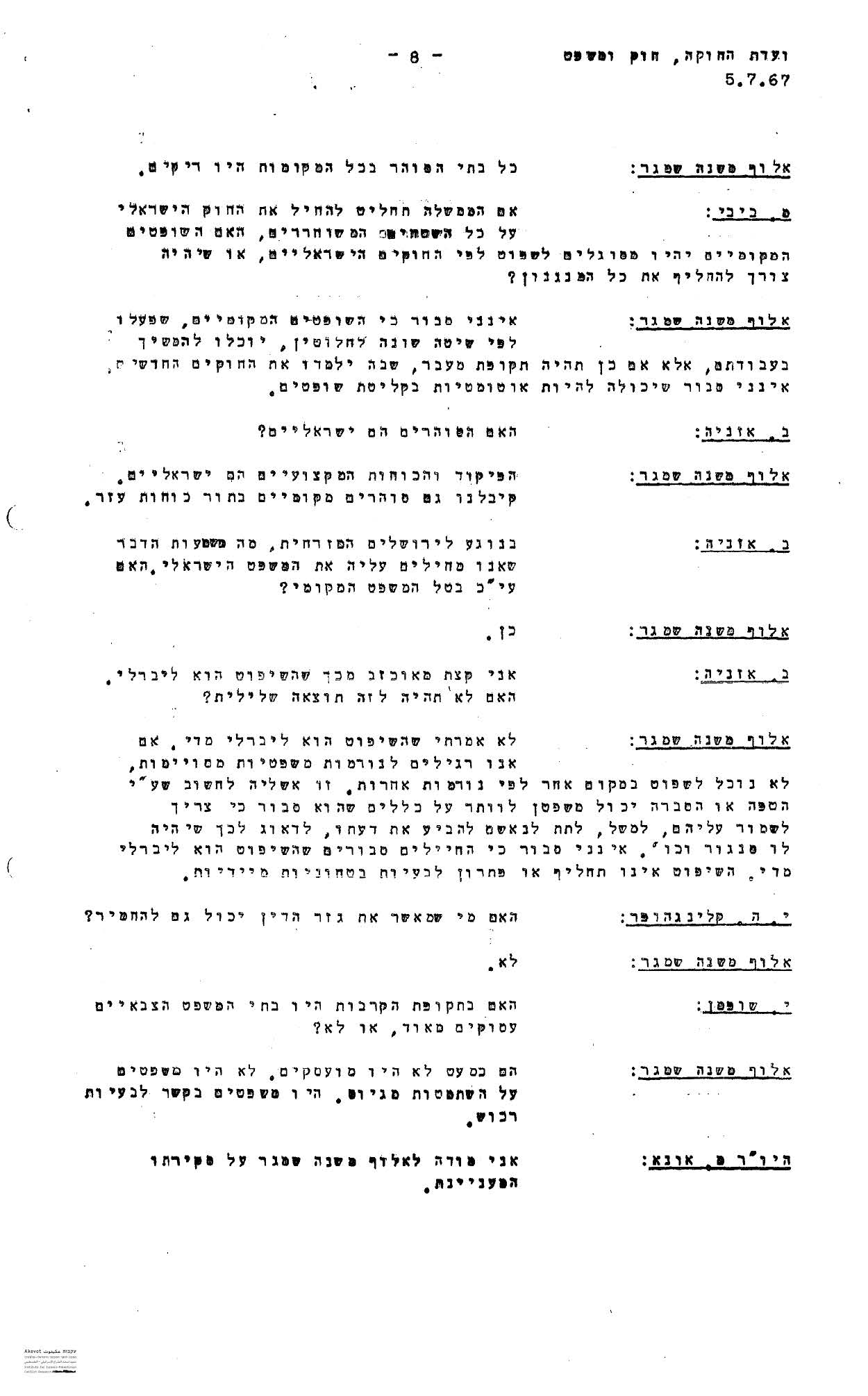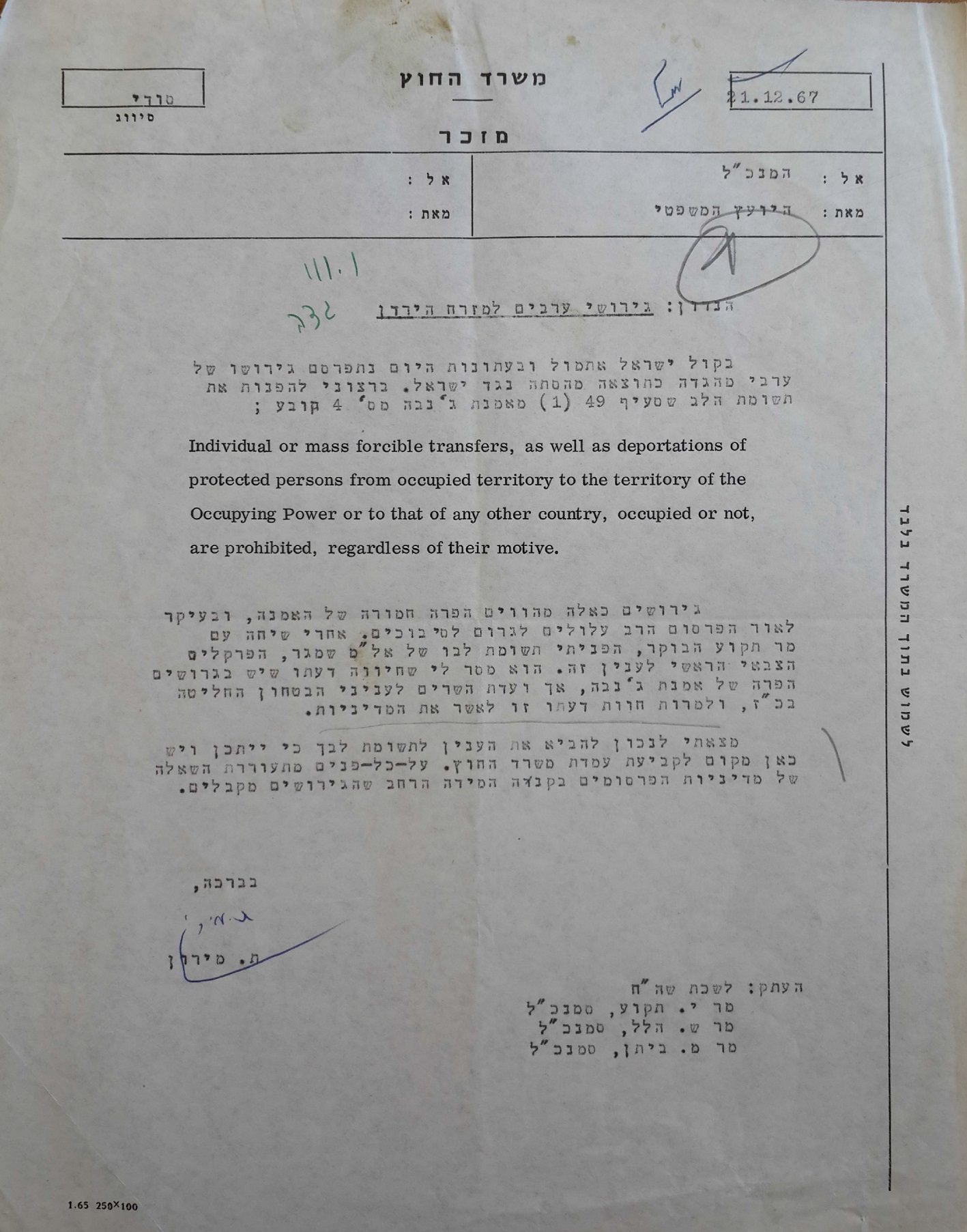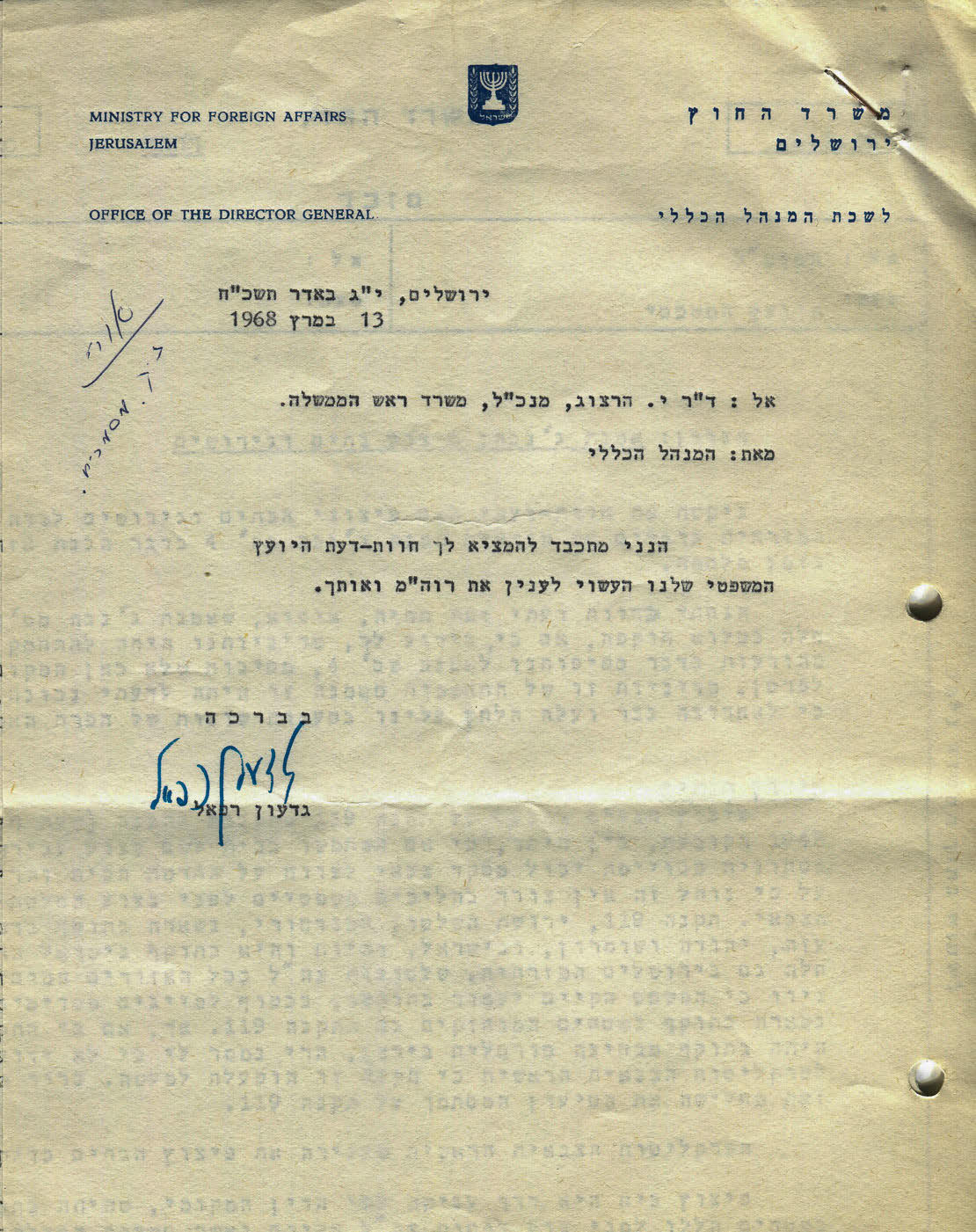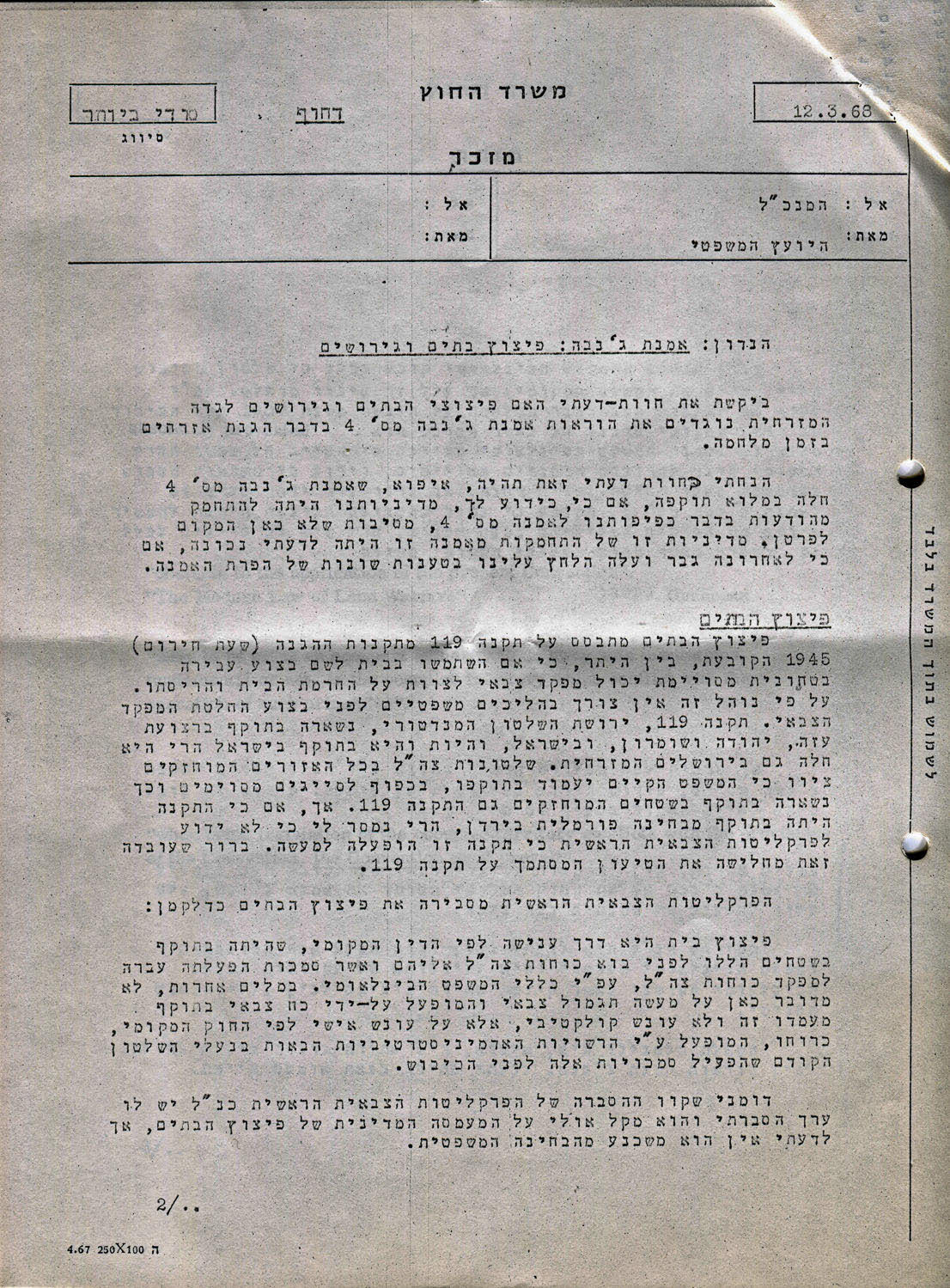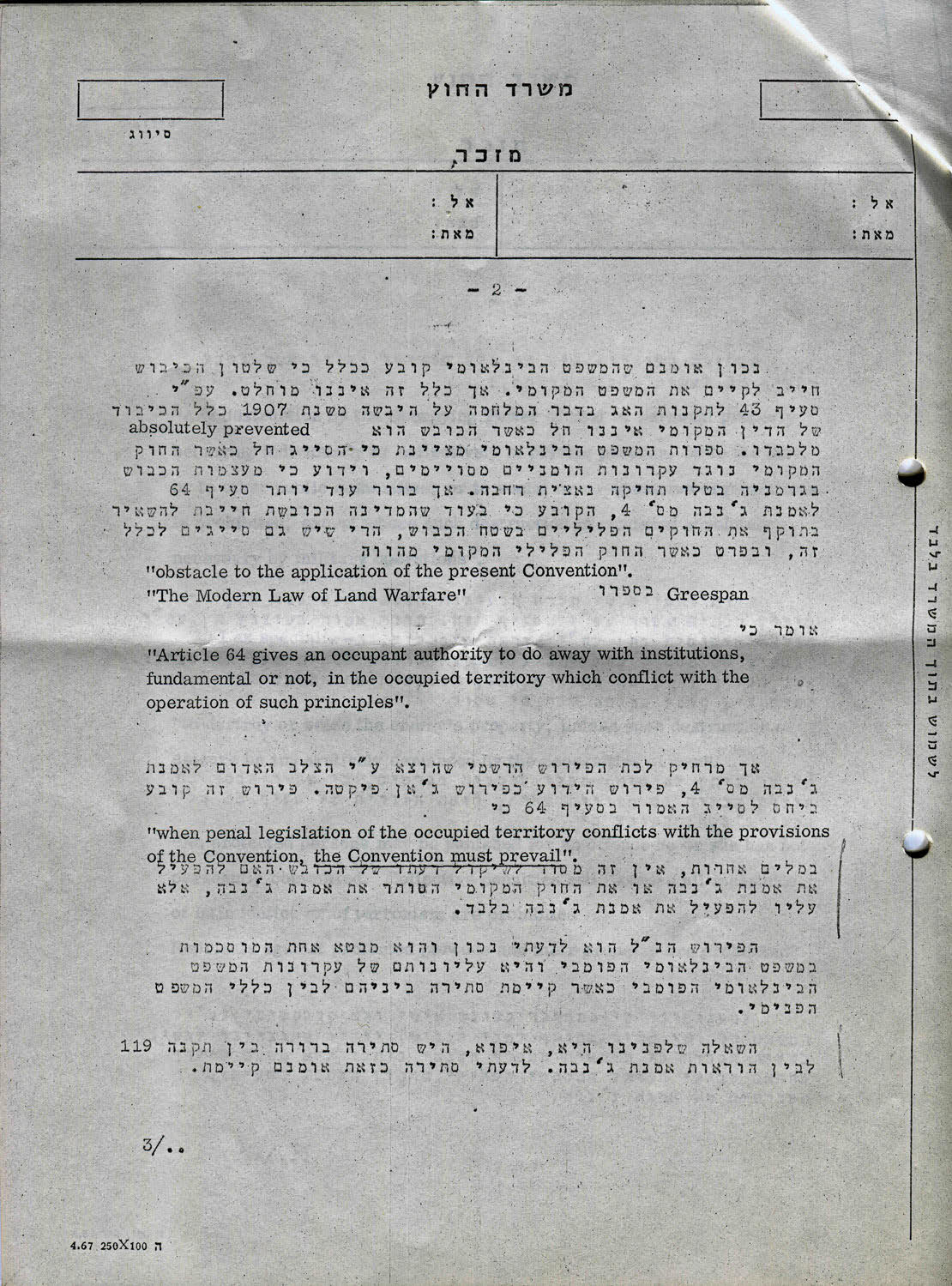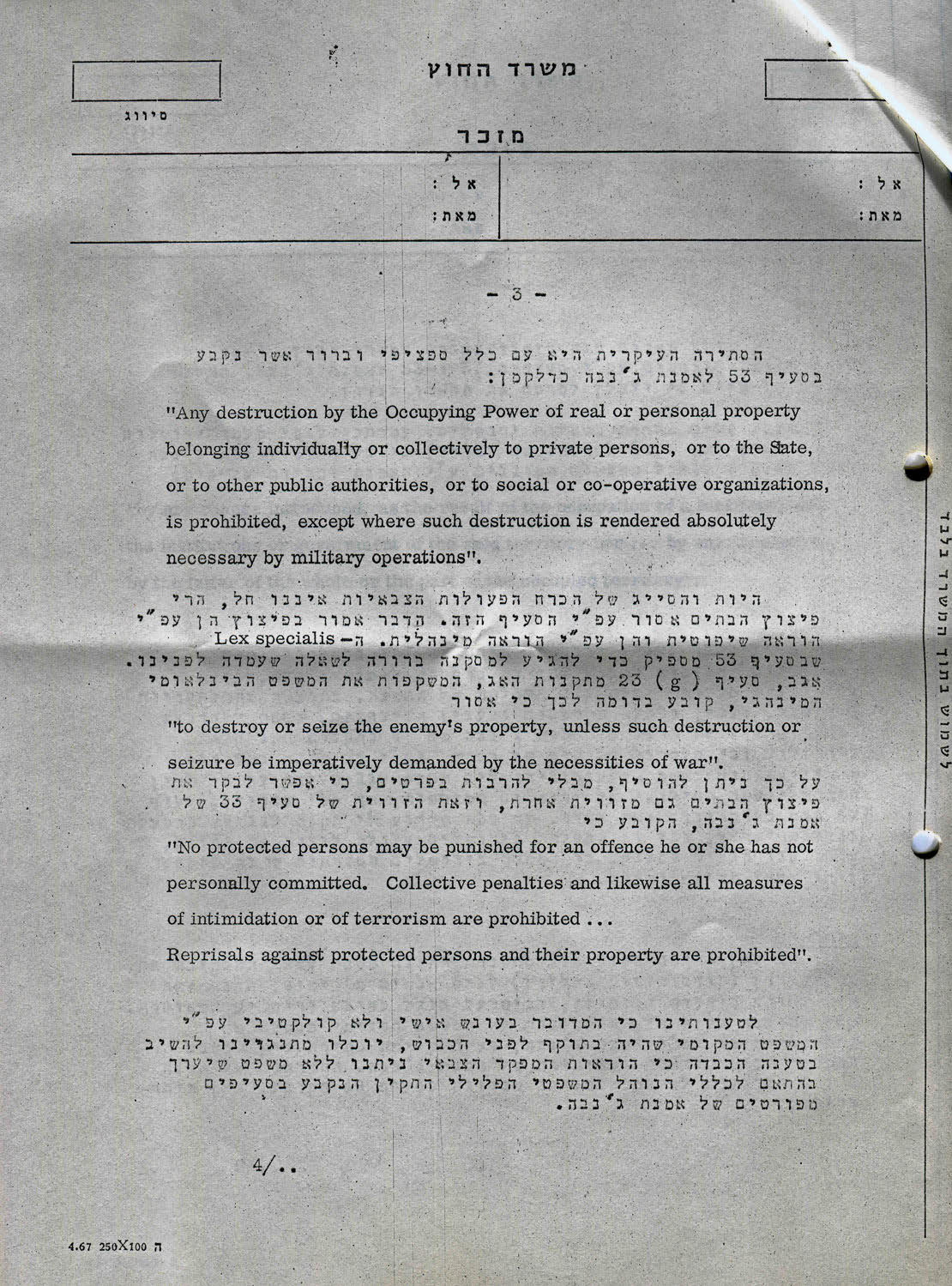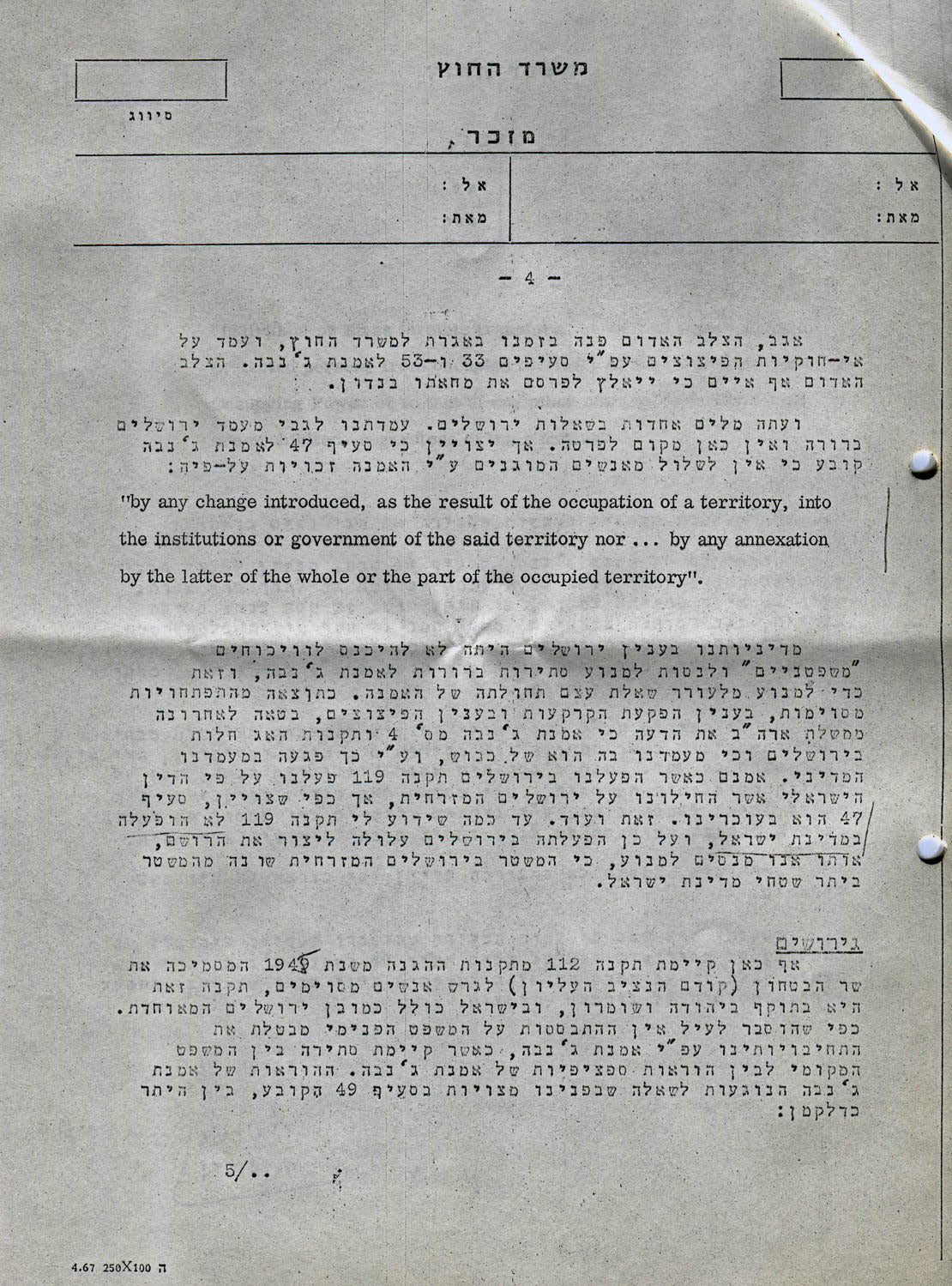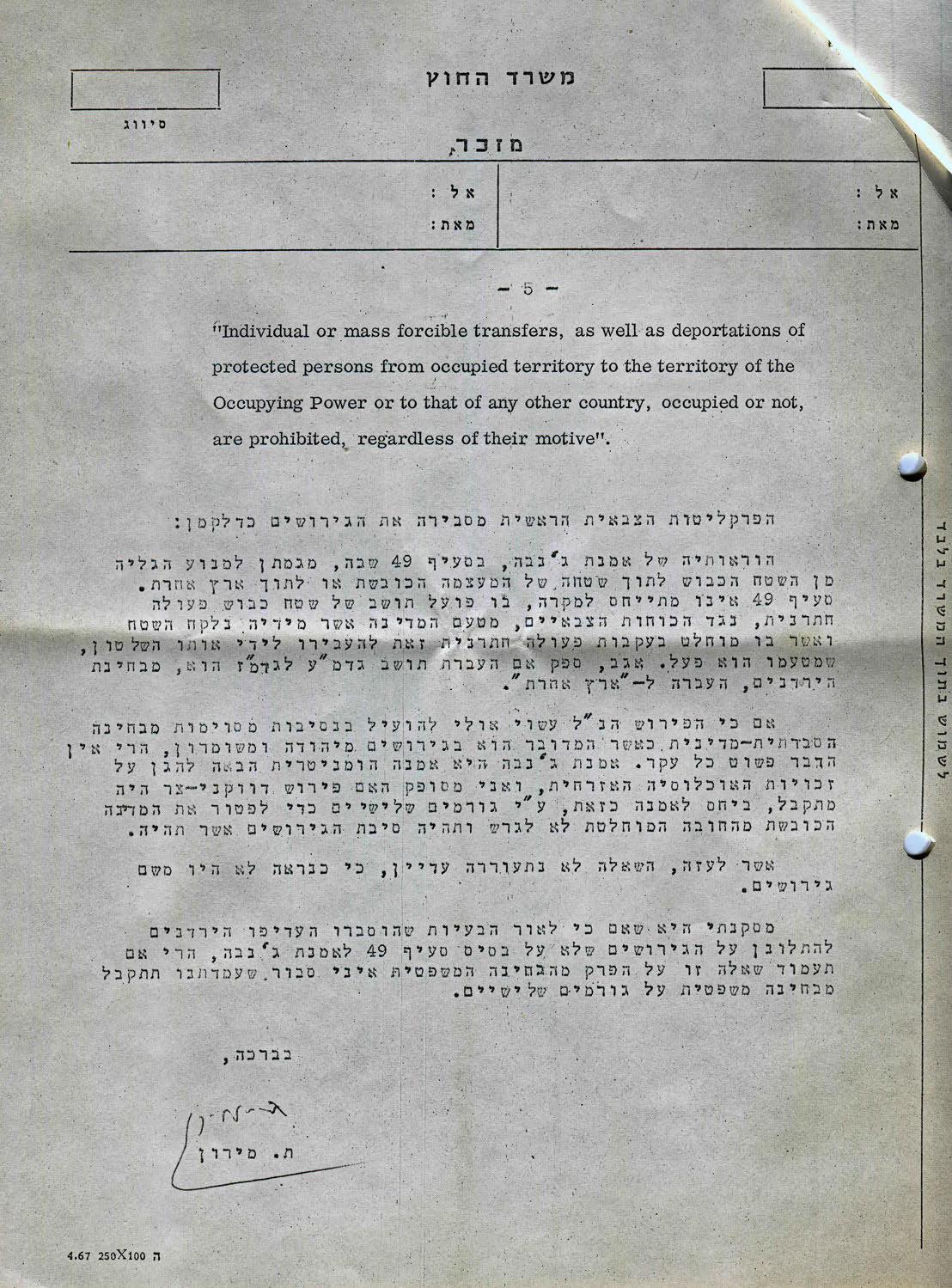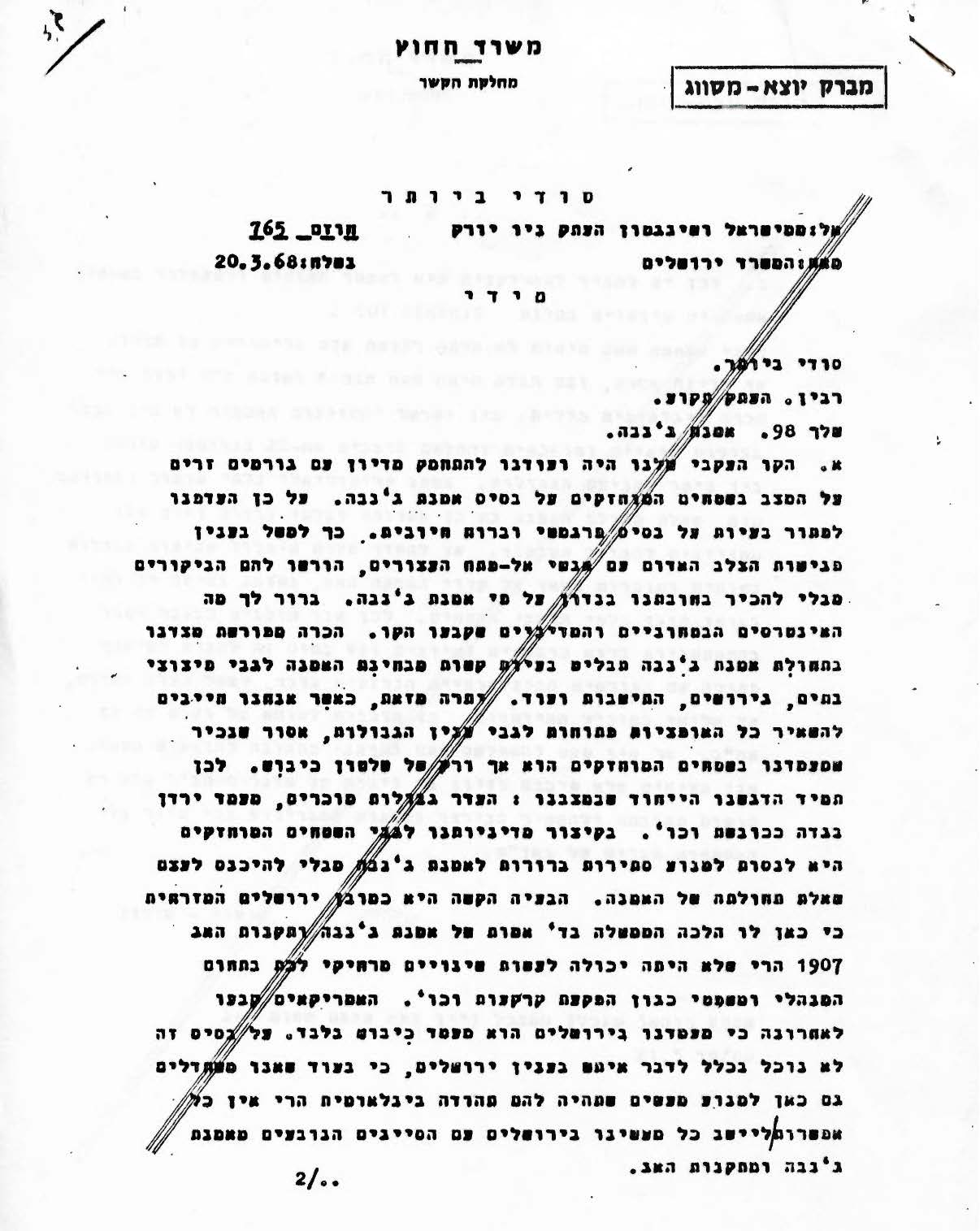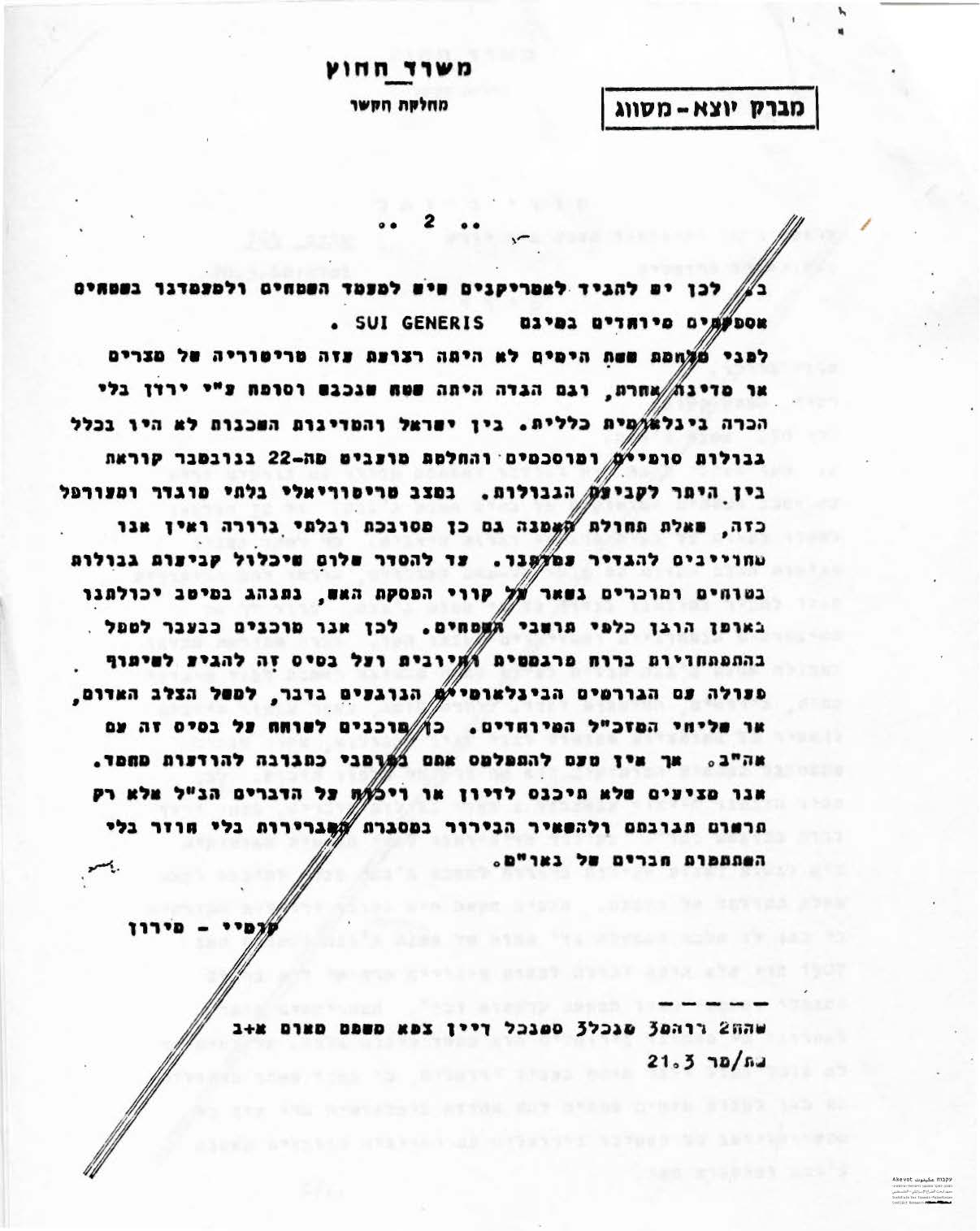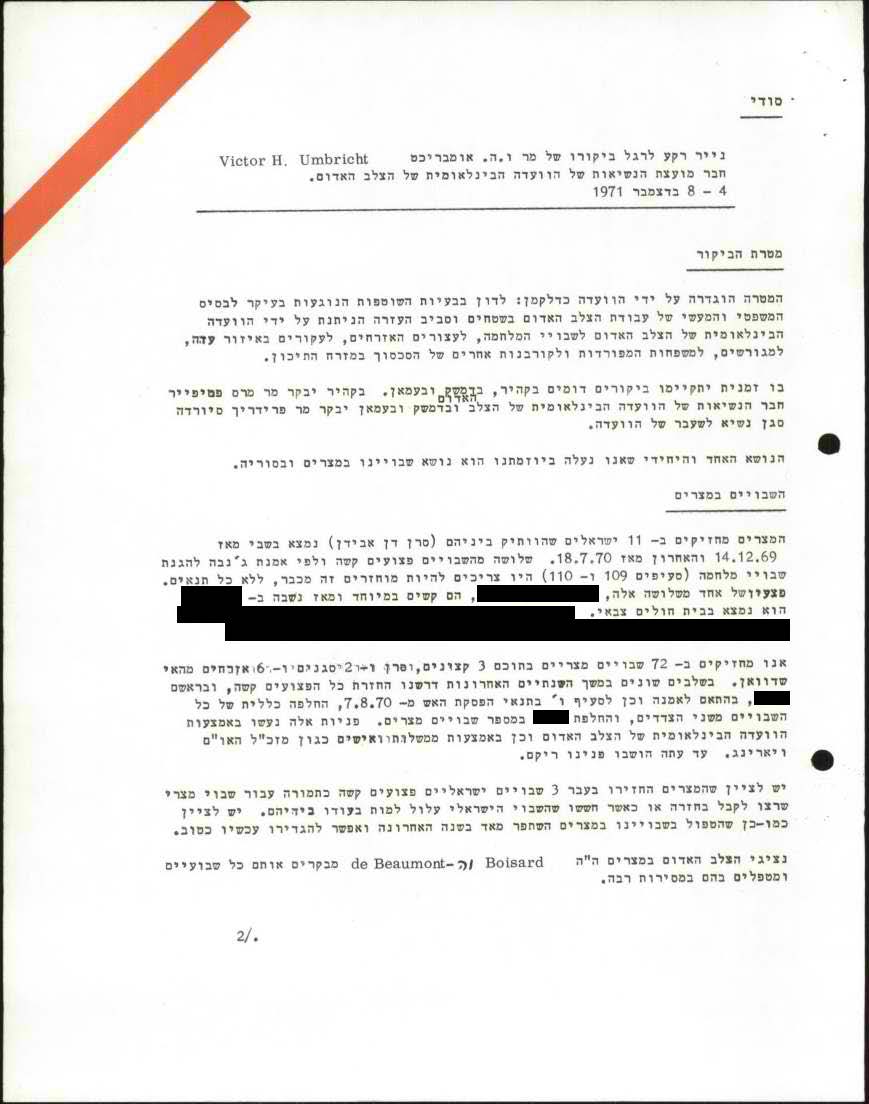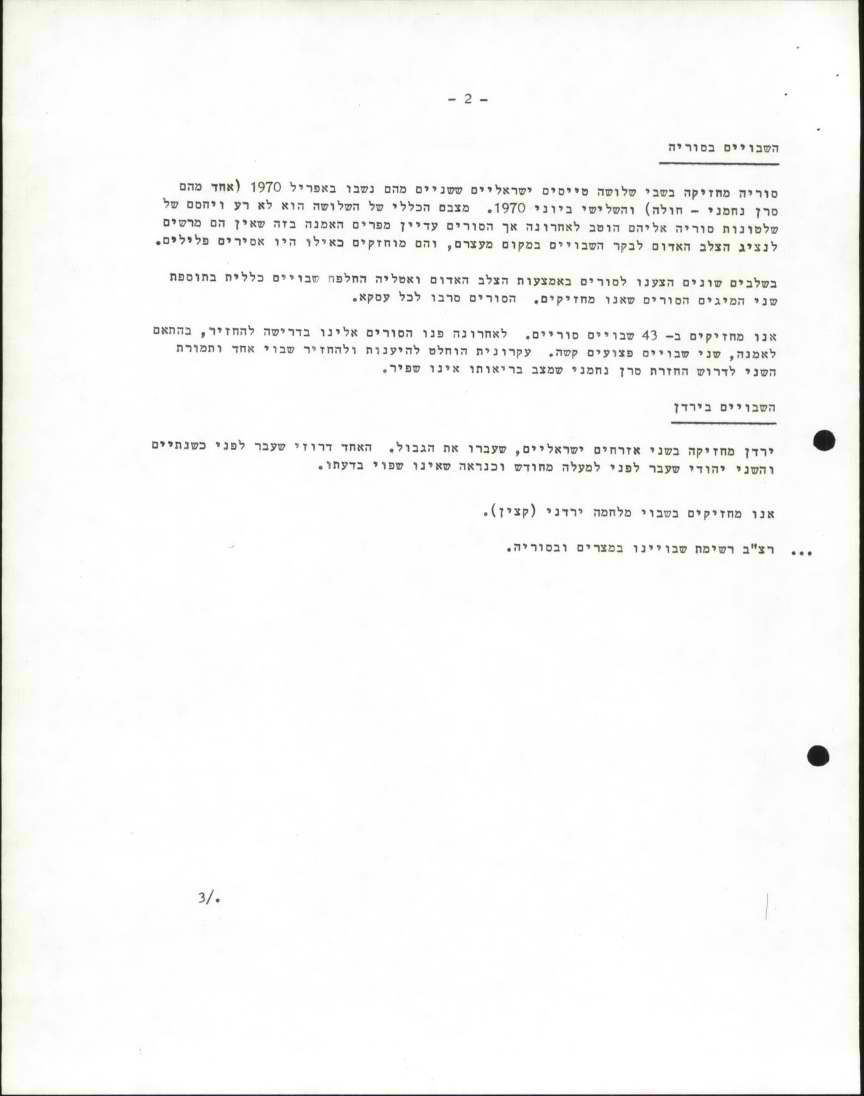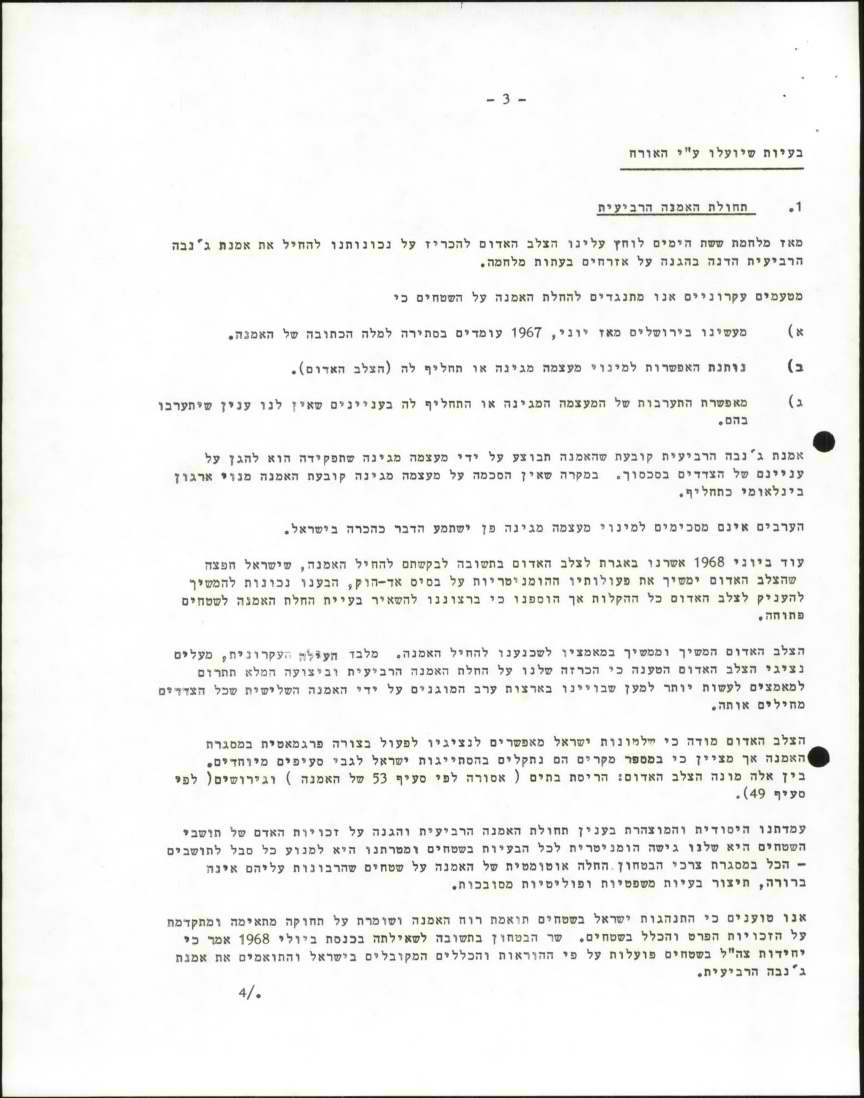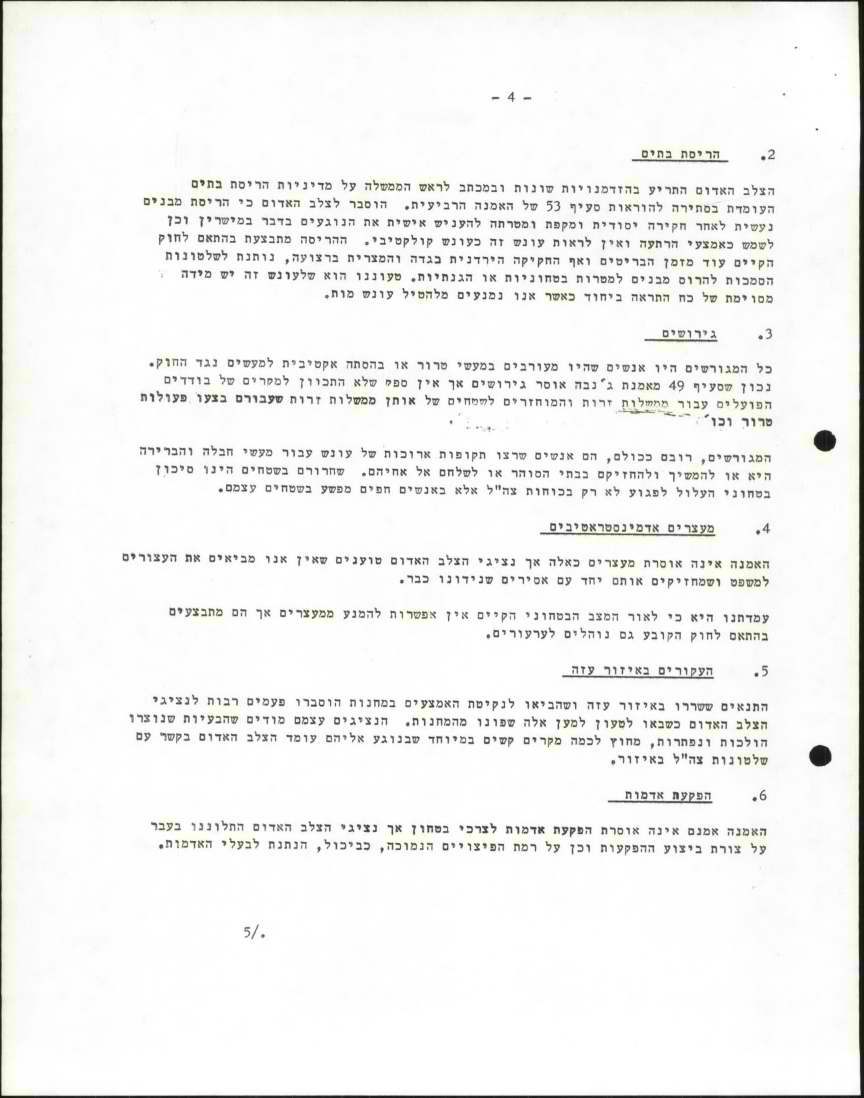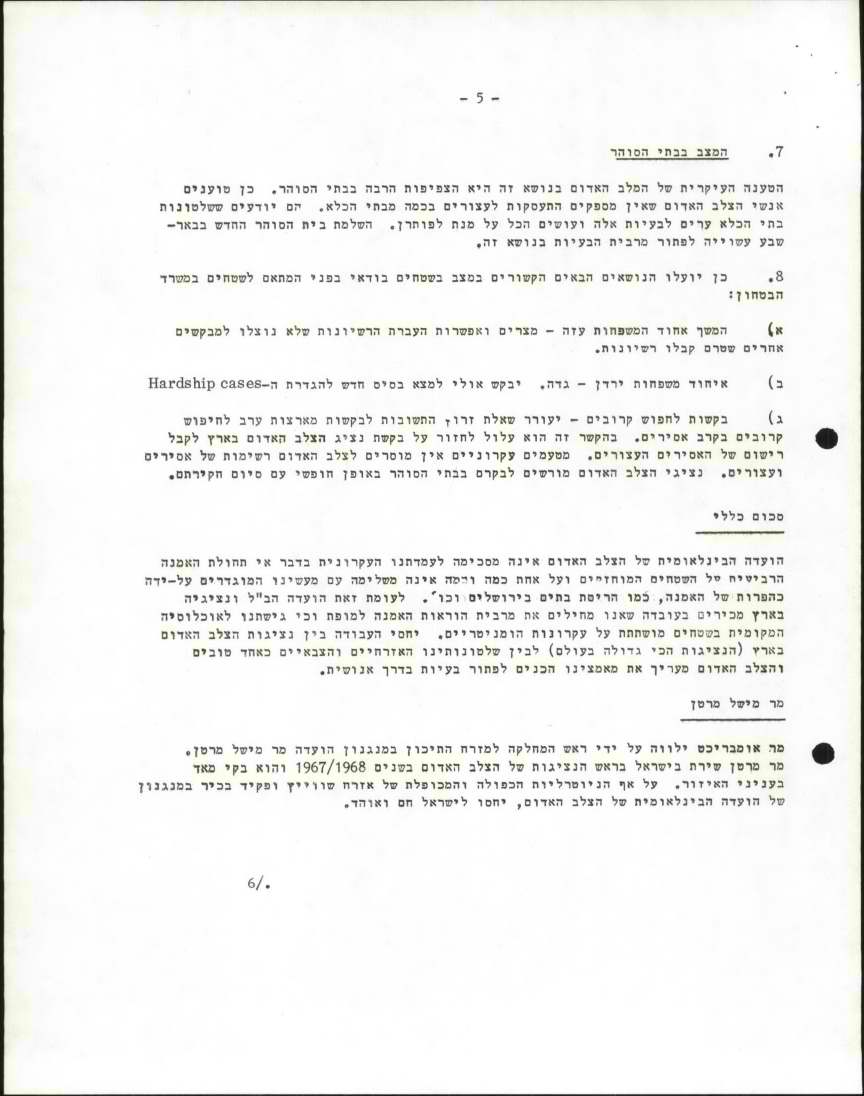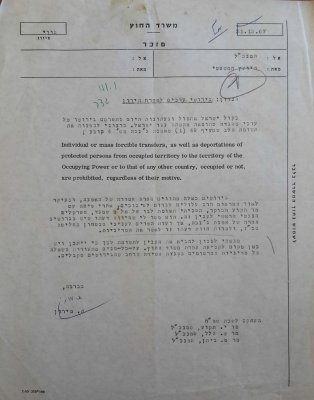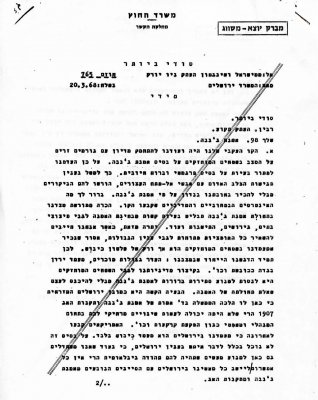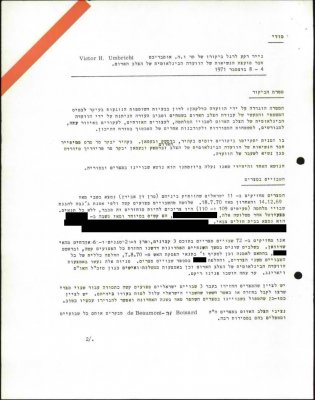On August 12, 1949, the Fourth Geneva Convention was signed – a document that sets out the agreed rules for the treatment of civilians during war and specifically provides regulations regarding the occupation of territory. The treaties were drafted and signed following the horrors of World War II, and the young state of Israel was an active participant in their drafting, a signatory, and even ratified it. In 1967, why did Israel deliberately avoid discussion on the question of the applicability of the Forth Geneva Convention? And why, just a few days after the occupation of the territories, did Foreign Ministry officials seek to obscure the nature of the Israeli actions in the newly occupied territories?
MAG briefing on the legal and juridical problems in the territories of the military government
The MAG reviewed, among other things, the rules of international law on administering occupied territories (including the Fourth Geneva Convention and 1907 Hague Regulations), the MAG Corps preparations to occupation, the existing legal systems in the occupied territories and setting up a military justice system there.
Colonel Shamgar has led the MAG Corps preparations for occupation before the 1967 war, and as a MAG, Attorney General (1968-1975) and Supreme Court Justice and Chief Justice (1983-1995) was one of the chief designers of Israeli policies in the Occupied Territories.
Re: Deportation of Arabs to East Jordan
Download the document’s English translation here (pdf)
Yesterday the Israel Broadcasting Authority and today the newspapers reported about the deportation of an Arab from the West Bank as a result of incitement against Israel. I should like to call attention to the fact that Article 49(1) of the Geneva Convention No. 4 stipulates as follows:
Individual or mass forcible transfers, as well as deportations of protected persons from occupied territory to the territory of the Occupying Power or to that of any other country, occupied or not, are prohibited, regardless of their motive.
Such deportations constitute a grave breach of the Convention, and, particularly given the wide publicity, may lead to complications. Following a conversation with Mr. Tekoah this morning, I called the attention of Col. Shamgar, the military advocate general, to the issue. He told me that he has stated his opinion that the deportations constitute a breach of the Geneva Convention, but that the Ministerial Committee on Security has nevertheless decided to approve the policy, despite his opinion.
I have found it necessary to bring this matter to your attention, as there may be a need to determine the position of the Ministry of Foreign Affairs. At any rate, there is the question of the policy of giving the deportations wide publicity.
Sincerely
T. Meron
To: Director General. From: Legal Advisor
“You have requested my opinion as to whether the blasting of homes and deportation to the East Bank contravene the Fourth Geneva Convention relative to the Protection of Civilian Persons in Time of War.
My presumption for the purpose of this opinion will, therefore, be that the Fourth Geneva Convention applies in full. However, as you are aware, our policy has been to avoid making statements regarding whether or not we are subject to the Fourth Geneva Convention for reasons which need not be detailed herein. This policy of avoiding the Convention was, in my opinion, correct, although, as a result of various allegations regarding violations of the Convention, pressure on us has mounted recently.”
The Comay-Meron Cable reveals reasons for Israeli position on applicability of 4th Geneva Convention
Download an English translation of the document here
Extracts:
“a. Our consistent line has been and continues to be to avoid discussions about the administered territories with foreign elements based on the Geneva Convention. This is why we have preferred to solve problems pragmatically and with a positive spirit. […] You realize what security and political interests dictated this line. Express recognition on our part of the applicability of the Geneva Convention would highlight serious issues with respect to the Convention in terms of blasting homes, deportations, settlements etc. Moreover, when we have to leave all options regarding borders open, we must not acknowledge that our status in the administered territories is simply that of an occupying power. Therefore, we have always stressed the unique features of our situation: lack of recognized borders, Jordan’s status as an occupier in the West Bank, etc. In short, our policy with respect to the administered territories is to try and prevent blatant clashes with the Geneva Convention without getting into the issue of its applicability. The truly difficult problem is, of course, East Jerusalem, because here, if the government had adhered to the Geneva Convention and the 1907 Hague Regulations, it would not have been able to make far-reaching changes on the administrative and legal level, such as land confiscations etc.[…]”
The Umbricht Brief: Israel and the 4th Geneva Convention
Victor H. Umbricht, a top official in the International Committee of the Red Cross (ICRC), visited Israel in December 1971. Ahead of his visit, the Ministry of Foreign Affairs prepared a briefing paper for the Israeli officials who were scheduled to meet with him. The briefing paper, which contained a review of the issues under discussion between Israel and the international organization, noted that Israel would bring up with the ICRC delegate only the topic of Israeli prisoners of war in Arab countries.
The authors of the paper also reviewed Israel’s policy toward the ICRC and the unresolved issues that remained between them and which Umbricht was expected to raise, particularly Israel’s abstention from recognizing the applicability of the Fourth Geneva Convention to its actions in the Occupied Territories. The document lists the reasons for this policy, noting primarily that: “Our actions in Jerusalem since 1967 contradict the written word of the Convention”. The brief also mentions concern that foreign entities – the ICRC or another government – would “interfere in matters we do not wish to be interfered with”. These listed matters include human rights violations such as house demolitions, administrative detentions, deportations and more.
Records documenting Umbricht’s visit and its outcomes are located in Israel State Archives File FO-4445/9.
Redactions in the document: One sentence and several identifying details in this document were blacked out by Akevot for privacy protection.
